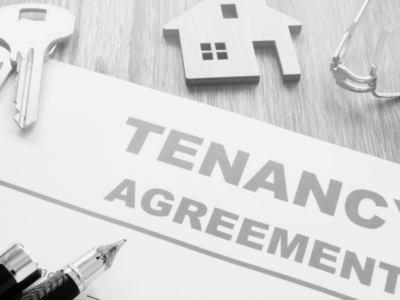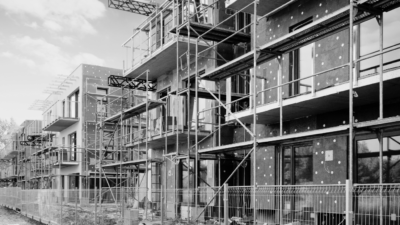Following an evidence session with the Work & Pensions Select Committee, Ben Beadle, Chief Executive of the National Residential Landlords Association, in his regular column for Property Notify®, explains why the Government must reverse the benefits freeze to support both benefits tenants and the landlords housing them.
Benefits claimants are being let down by the Government, with an ever-growing gap between the housing element of benefit payments and market rents.
With the cost-of-living crisis biting across the board it is essential that those who need support receive it, however present levels of support to renters in receipt of working-age benefits – particularly those linked to housing costs – are falling woefully short.
With 38% of all private renters in receipt of housing benefit this is an issue that needs to be urgently addressed.
I was in Whitehall last week giving evidence to a House of Commons Work and Pensions Committee, which launched an inquiry into the adequacy of working-age benefit levels in the UK earlier this year.
On behalf of the association and its members I told the panel the current benefits system is not fit for purpose, particularly at a time of housing crisis when the challenging economic climate is undermining landlord confidence and forcing up rents as landlords battle rising bills.
The figures
Benefit payments for housing costs are calculated using Local Housing Allowance (LHA) rates.
Historically rates were set at the average rental price for an area, with the sum regularly reviewed.
However the rate was reduced to the 30th percentile in 2011.
Rates were frozen between 2016 and 2020, before – at the outset of Covid – being realigned to the 30th percentile once more, based on rental prices as of September 19.
A further freeze has been in place since then, despite the soaring cost-of-living, which has seen real-world rents going up by more than 10%.
For many low income and vulnerable tenants, this means a daily struggle to meet their basic living costs, with more and more households facing a shortfall between LHA payments and monthly rent.
Payment shortfalls
Between April 2020 (when LHA rates were frozen at the 2019n rates) and August 2022, the number of households facing a shortfall in their housing benefit increased by 50%, representing more than 791,593 private rented households in England and Wales.
In real terms this is costing households on average around £750 a year, money they, very often, simply don’t have.
New data from the Institute for Fiscal Studies also makes grim reading, showing 5% of PRS homes advertised for rent on Zoopla are now affordable for those in receipt of Housing Benefit or Universal Credit. This has fallen from almost a quarter before the freeze.
It is said that the true measure of society is the way treats its most vulnerable members, so the Government must reverse this unfair benefits freeze if the country’s 1.3 million Universal Credit claimants are to access the safe, decent affordable houses they need and deserve.
Without this there is a real risk in them falling into debt, poverty and potentially homelessness.
What the Government can do
The NRLA is asking for:
- A reversal of the freeze on LHA rates – which should instead be aligned to at least the 30th percentile – based on today’s rents
- The abolition of the five-week wait for Universal Credit payments
- Payment of the housing element of Universal Credit in advance to better reflect rent payment cycles
- The replacement of the existing advance payment loan with a grant
- Housing benefit paid directly to landlords.
These proposed changes are not all about increasing payments, but include tweaks to the way the benefits system is administered, with the current process seeing both claimant and landlord on the back foot from the very start.
This is not just the NRLA’s stance, with the Economic Affairs Committee in a review of the Universal Credit system in 2020 agreeing, “The five-week wait is the primary cause of insecurity in Universal Credit. It entrenches debt, increases poverty and harms vulnerable groups disproportionately.”
The NRLA wants an end to the five-week wait at the start of a Universal Credit claim, allowing payments to be made up front. The advance payment, currently made as a loan, also needs to be converted to a grant, guaranteeing tenants do not automatically fall into debt from the outset of the claim.
Mirroring recent changes to the administration of childcare support, we want the housing element of Universal Credit to be paid upfront to better align with most rent payment cycles, and to mitigate the risk of arrears.
We also want to Housing Benefit paid directly to landlords by default, to help to restore trust in the Universal Credit system and reduce the onset of rent arrears.
Benefits MUST reflect market rents
Keeping Housing Benefit rates pegged to market rents is vital – and the Government needs to carry out an impact assessment on its decision to freeze LHA rates this year as a matter of urgency, before determining rates for 2024 – 2025.
While the Government’s plan to ban advertising ‘no-DSS’ properties as part of its Renters (Reform) Bill is both fair and right, it fails to recognise that under the current system, landlords do not have confidence that tenants will not fall into rent arrears as consequence of the administrative hurdles they face.
If the Government wants to improve access to the PRS for benefits claimants, it must work in tandem with landlords to ensure the necessary mechanisms are in place to restore and retain trust in the welfare state.
Find out more about the NRLA’s campaigns work on benefits here.





















Comments